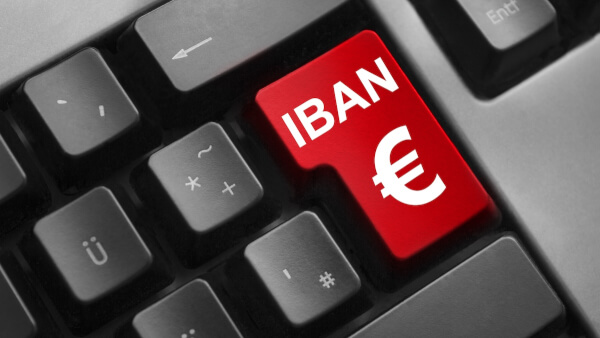What is a Multi-Currency IBAN & How to Get One
Learn about multi-currency IBANs and how they simplify international transactions. Follow the steps to get a multi-currency IBAN for your business.

If you're planning to start a business in New York but your company was formed in another U.S. state, or even outside the country, you're not alone. Many businesses expand into New York from elsewhere, and there’s an important step to consider: filing for what's known as a foreign qualification.1
Despite the name, “foreign” in this context simply means your business was formed outside of New York, whether in another state or abroad. Either way, you'll need to register properly to stay compliant with New York’s business regulations and avoid any penalties down the road.2
If you’re unsure of how to start a business in New York as a foreign entity, then don’t worry! This article is meant to walk you through the steps to register as a foreign entity, so you can start operating in New York with confidence.
Managing international business payments?
Try Wise Business ->
A foreign qualification in New York is a legal process that allows a business formed outside of New York, whether in another U.S. state or another country, to legally operate within the state.3 Despite the name, “foreign” doesn’t only refer to international companies; it includes any business that was established outside of New York. So, if you formed your LLC or corporation in a state like New Jersey or California, or even abroad in places like Europe or Asia, and now want to expand into New York, you’ll need to file for foreign qualification with the New York Department of State.2
It might sound a little complex, but the process is relatively straightforward. It’s a process that makes sure your business is officially recognized by the state and stays compliant with local laws and tax requirements. Think of it as a business visa for operating in New York.
If you’re expanding your business into New York, congrats! New York is a busy state, one that will definitely help expand your business. But it does come with its own checklist. The requirements for foreign qualification in New York State include:
It can sound like a lot, but the good news is, once you have the right steps lined up, the process becomes much more manageable. Also good to note, it is recommended (and in some cases mandatory) to hire a registered agent for your business in New York State.
A New York Certificate of Authority is essentially your business’s permission slip to operate legally in a state where it wasn’t originally formed.2 If you started your LLC or corporation in one state but want to expand into another, like New York, you’ll need this certificate to show that your business is registered and recognized by that state’s government.3 It’s part of the foreign qualification process and proves that your company is in good standing in its home state and compliant with local rules where you’re expanding.
Without it, you could face fines, back taxes, or even be barred from doing business altogether. Think of it as a way to keep things above board while you grow.5
If you own a business that was formed in another state and you want to operate in New York, then yes, you’ll likely need a foreign business license, also known as a Certificate of Authority.2 This process is called foreign qualification, and it’s how New York keeps track of out-of-state companies doing business within its borders.
New York law requires that you register, even if you own a remote business that sells in the state. Operating without proper registration can lead to fines and even the loss of your ability to sue in state courts. That said, not every activity counts as “doing business”, so if you're unsure whether you need to file, it’s smart to consult with a business attorney or a professional service5. Staying compliant up front is much easier (and cheaper) than dealing with legal issues later.
If your company was formed outside of the United States and you're planning to operate in New York, the process is very similar, and yes, you will also need a Foreign Business License. You’ll still need to register as a foreign business entity and apply for a Certificate of Authority through the New York Department of State.
This lets the state know you’re doing business here and that you meet local legal and tax requirements. Just like U.S.-based companies, you’ll need to appoint a registered agent in New York and provide documentation like a Certificate of Good Standing (or the equivalent from your home country).
Getting your business foreign qualified in New York is an important step that helps you operate legally and confidently in a new market. Like we discussed, you will have to gather your Certificate of Good Standing to file the Application for Authority and pay the state fees, but the process is straightforward when you know what to expect.2
Keep in mind, timelines and requirements can vary slightly based on your business structure, so double-checking the details never hurts. And if it feels a bit overwhelming, you’re not alone; many business owners choose to work with a professional service to save time and make sure everything is done correctly. Once you're registered, you’ll be ready to expand your operations in New York, so you can be successful in the Empire State.
Foreign qualification applies to businesses formed in another state that want to operate in New York.2 Registering a new business means you're creating a brand-new legal entity within New York, subject to its formation requirements.3 Both allow you to operate, but they follow different processes and legal structures.
You don’t need a physical office, but you must designate a registered agent with a physical street address in New York.5 The agent will receive legal documents and official correspondence on your behalf. P.O. Boxes aren’t accepted, so having a reliable local representative is a legal requirement.2
The standard processing time for foreign qualifications in New York is usually between 5 and 10 business days.2 However, if you're in a rush, the state offers expedited processing for an additional fee, which can reduce the timeline to as little as 24 hours, depending on the request.3
Yes, in most cases, you’ll need to file taxes in both your original state and New York. This depends on your business activities and income sources.4 To avoid double taxation or missed filings, it’s best to consult a tax professional familiar with multi-state business compliance.
No, New York does not allow P.O. Boxes to be listed as your business or registered agent address.2 The state requires a physical street address where legal documents can be delivered during business hours.5 This is a standard requirement to maintain accountability and legal accessibility.
Operating in New York without a foreign qualification can result in penalties, late fees, and legal restrictions.2 Your business may lose the right to file lawsuits in state courts until it becomes compliant.3 You could also face back taxes and other administrative complications that may disrupt your operations.5
While you don’t “renew” your qualification in the traditional sense, you must file a Biennial Statement every two years to keep your foreign status active.2 Failing to do so can result in your business falling out of good standing, which may lead to additional fees or suspension.3
Once you have established your business with an LLC, you’ll need a business account to manage your US finances. A Wise Business account is easy to open online and comes with no monthly fees. You can convert funds from your home currency to USD with low, transparent fees.
Wise is not a bank, but a Money Services Business (MSB) provider and a smart alternative to banks. The Wise Business account is designed with international business in mind, and makes it easy to send, hold, and manage business funds in currencies. You can get major currency account details for a one-off fee to receive overseas payments like a local. You can also send money to countries.
| Some key features of Wise Business include: |
|---|
|
Open a Wise Business account online
Sources:
*Please see terms of use and product availability for your region or visit Wise fees and pricing for the most up to date pricing and fee information.
This publication is provided for general information purposes and does not constitute legal, tax or other professional advice from Wise Payments Limited or its subsidiaries and its affiliates, and it is not intended as a substitute for obtaining advice from a financial advisor or any other professional.
We make no representations, warranties or guarantees, whether expressed or implied, that the content in the publication is accurate, complete or up to date.

Learn about multi-currency IBANs and how they simplify international transactions. Follow the steps to get a multi-currency IBAN for your business.

Read our Payset review to see if it's the best business bank account for international payments. Explore features, fees, and user experiences.

A comprehensive guide on starting a consulting business. From planning to execution, learn the steps to launch and grow successfully.

Learn how to import goods from South Korea. Our guide covers everything from regulations to shipping, making your import process smooth and easy.

Discover what virtual IBANs are and how multi-currency IBANs can benefit your business.

Learn how to hire independent contractors in Canada. Understand legal rules, tax responsibilities, and how to avoid misclassification with this guide.